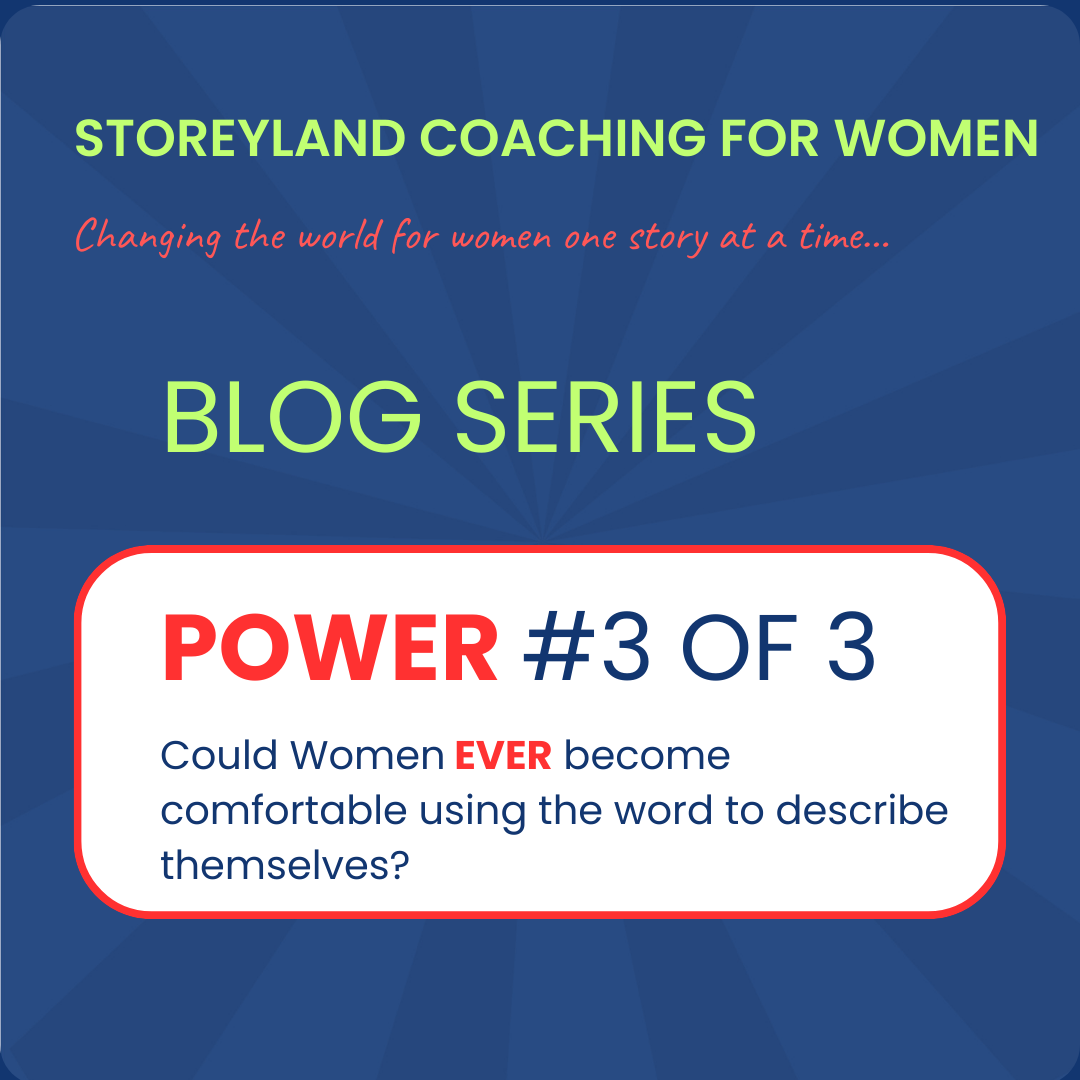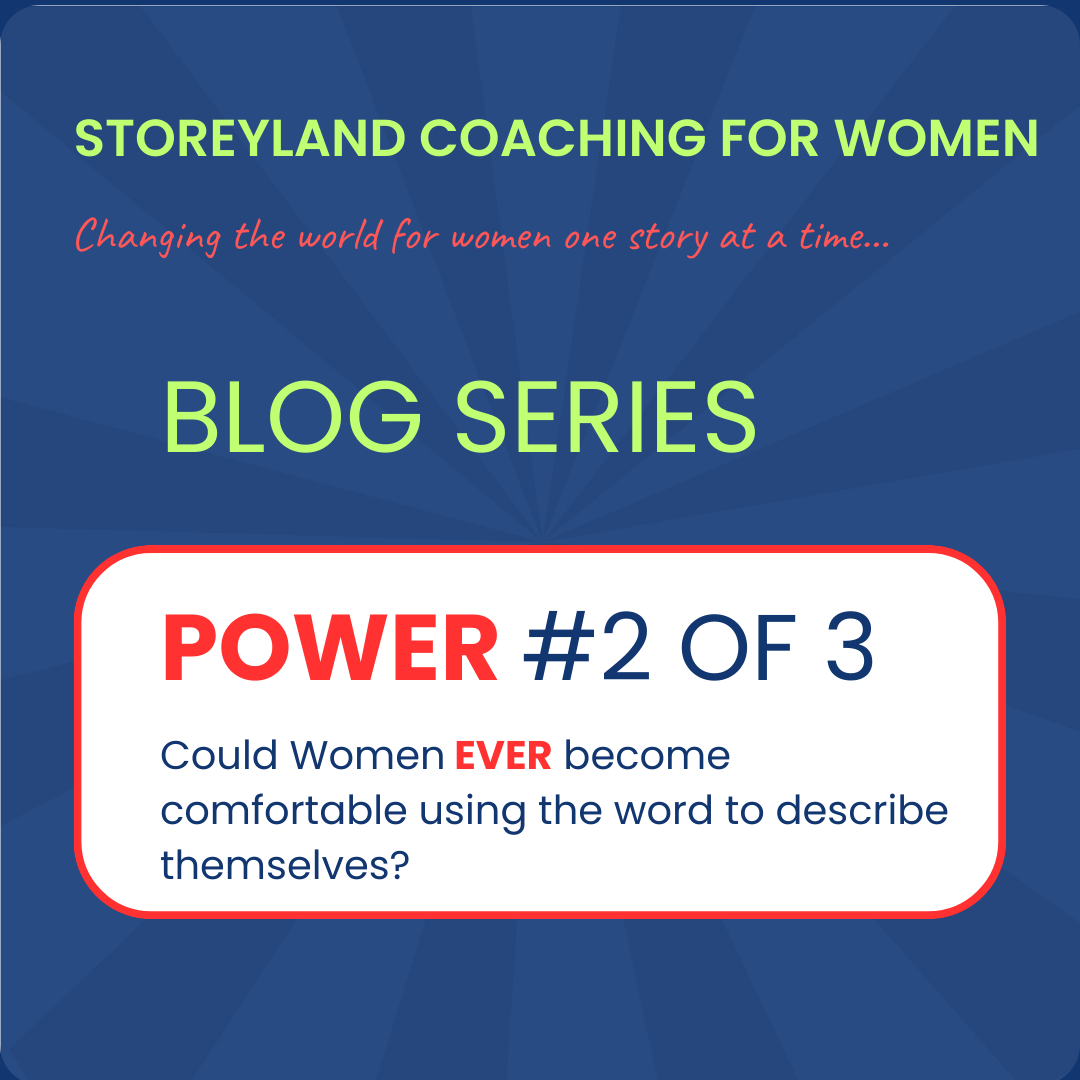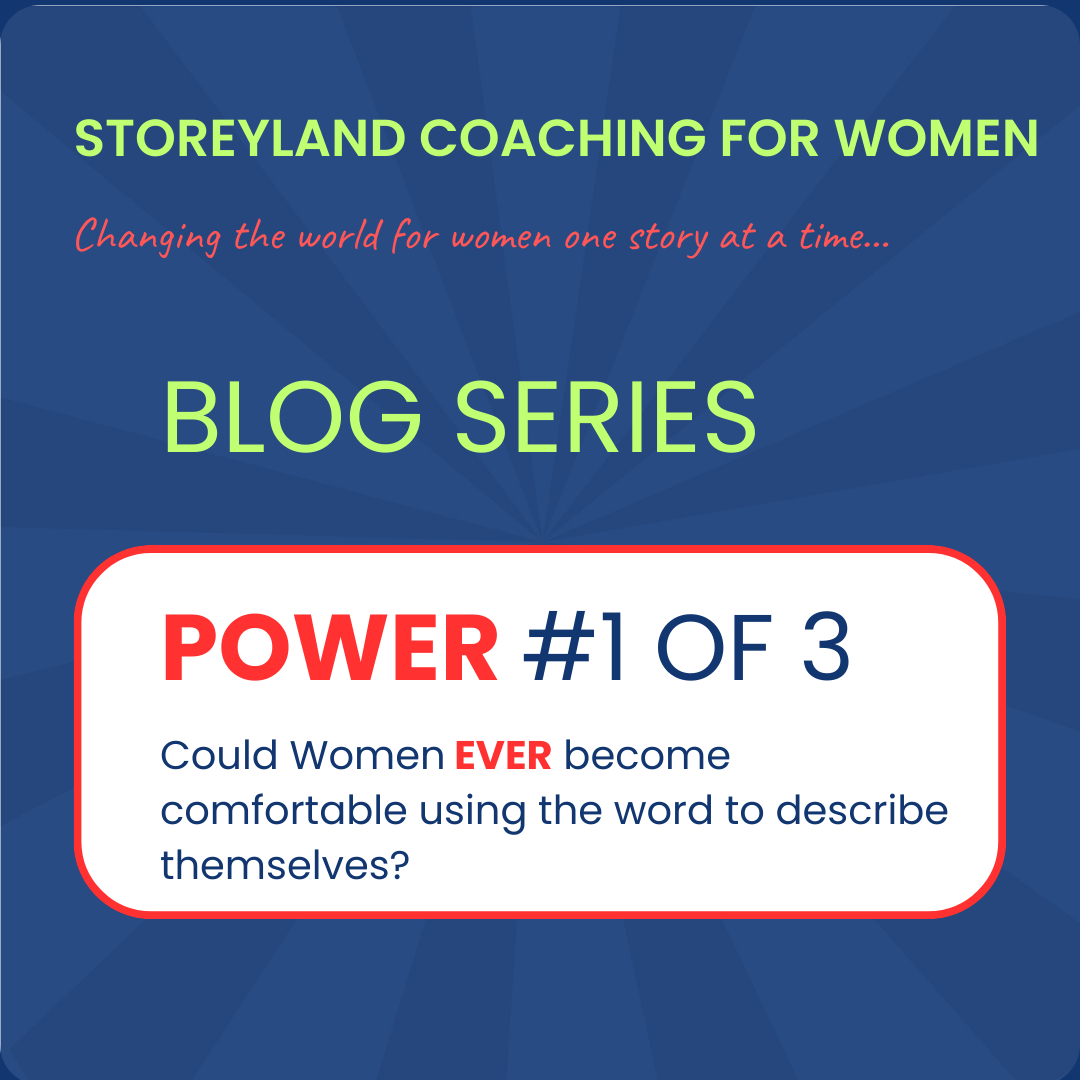Power #4 of 4
Women and Men - How Do We Fix the Power Imbalance Between Them?
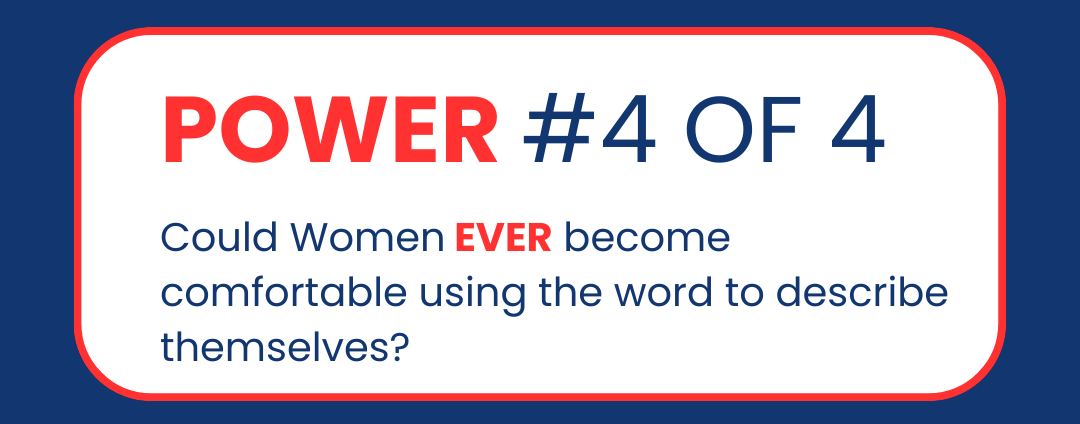
#4 Changing the power imbalance for women.
Only when we understand the components of power imbalance can we start to look at changing it. And, as with other examples of a power imbalance such as humans and animals, there are components of the power imbalance between men and women that can be addressed on both sides of the equation.
In writing these blogs, I hope to give insight into the conditions needed to start to change the imbalance of power between women (all oppressed groups [not all women are oppressed]) and men (all oppressors [not all oppressors are men, not all men are oppressors]). And I do that, of course, to improve the experiences of women everywhere, but also in the hope that women can develop a new and positive relationship with the word POWER.
Because it is my belief that women are incredibly powerful beings. And, for the world to benefit from, and not to be intimidated by, that power, we must ALL become more comfortable with the concept. Women because, if we see power as harmful, we cannot step into and own our power. And Men, because if men see women’s power as negative, or a threat to the power imbalance that they perceive to benefit them, there will continue to be conflict between the sexes. And that benefits no-one. Including men.
Ultimately, if we can ALL accept that we ALL have collective power - and that the more connected we are, the more power we can generate to bring peace and stability in the world.
So how do we do that?
In a power-imbalanced world where men ARE more powerful (physically and socially) – how can women become less vulnerable to harm?
I believe there are two sides to the equation that need to be addressed.
- Women shift from being vulnerable to harm > to resilience against it.
- Men gain power maturity.
1. Women gain resilience against vulnerability to harm.
In order for women to become less vulnerable to harm (by harm here I mean having less influence, less wealth, greater barriers to advancement, disproportionate burdens of parenthood, greater likelihood to be in poverty, greater likelihood to be victims of violent crime etc), (in the absence of the willing and conscious relinquishing of power from men with power immaturity), it would seem logical that they need to gain resources from elsewhere.
- Allies. Allyship from men who have power maturity can co-create a new society for women and girls that allows women to thrive and develop their power. One that benefits everyone.
- Each Other. The power of a group of women is mind-blowingly transformational. And we need more of it. Because when we do, women see to it that EVERYONE wins.
- Benefactors / Donors / Enablers / ‘Saviours’. Resources provided by those who have them and the maturity to see the benefit of directing them towards vulnerable groups, can be life changing. And benefits everyone.
- Beneficial societal shifts of opinion or change in ‘norms’ or events. Things ARE changing positively for women and girls, And as it does so, the context for progress will change. But things like wars and politics also change opinions in opposing directions. Some of these things seem out of our control. But they are NOT. Those of us who live in democratic societies MUST use our vote to ensure societal attitudes shift in the right direction. For everyone.
- Leadership / Role Modelling / Success Elsewhere. There is no doubt that ‘We cannot be who we cannot see’. Visible, fearless, female role models can change the ambition of others.
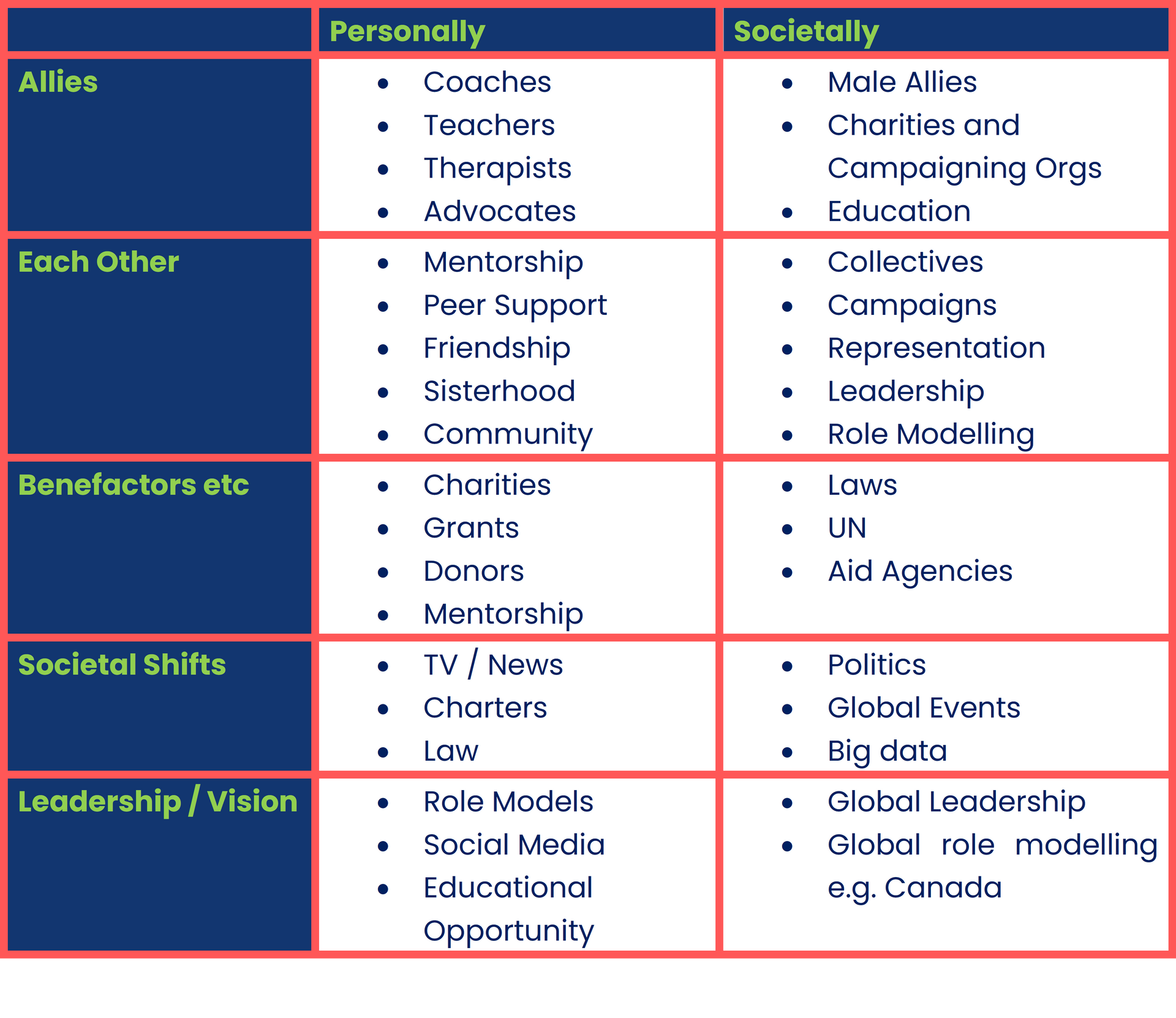
2. Men develop Power Maturity
As in any power imbalance, the powerful either have Power Maturity or they don’t – which dictates the extent to which they (a) understand and (b) can relinquish their power for the greatest good. - or not.
Also, in any power imbalance, the Powerful WITH Power Maturity are NOT the group of people who need consideration. By definition, they can already use their maturity to address the problem.
And so, in case of men who DO NOT have Power Maturity, we must consider that, they two, fall into 2 groups – they are either Conscious or Unconscious of their Power Immaturity
The consciously immature fall, again, in to two groups. One being those who dislike the harm they create who are, of course, the easiest group to consider. They recognise the need to relinquish some of their power and privilege, but perhaps don’t know how to do it. They want to be allies and are willing to understand how to step aside and enable positive discrimination to women and girls who, for too long, have been harmed by an imbalance of Power.
The other consciously immature group are, adversely, the hardest and most dangerous group to consider. They are the group who know they inflict harm with their Power and continue to do so anyway. The harm in itself, fuels the Power. They have no interest in becoming allies, and benefit from perpetuating the power imbalance in their favour.
The unconsciously immature, are also a hard group to consider, but, I believe it is THIS group for whom there is the most potential for change and are where we should firstly focus our attention. In lacking insight into their own immaturity, they cannot see the harm they cause, they cannot acknowledge their role in it and they can only understand the benefit to themselves of the Power they hold. But until they become conscious of their power immaturity and choose to ignore it, there is still hope that they can be influenced.
Much like, on the other side of the equation where groups of women who are particularly vulnerable to harm need ‘others’ to intervene, THIS group of men ALSO need others to intervene. They are unable, or unlikely to self-generate change or insight without external input.
- Education. Power Maturity can only be gained if an ‘other’ agency provides information and education to enable the growth and to give greater understanding of what is possible.
- Role Models & Leadership. Seeing inspirational people do things differently can open up possibility. But only if the BENEFIT is clear. Only role models who can demonstrate the POSITIVE impact of gaining Power Maturity that leads to relinquishing power can inspire others to make the same shift.
- Force. Others can come to the defence of the vulnerable by taking out the Powerful (different to empowering the powerless). An immediate response to this, of course, is that force is not usually desirable. But perhaps we can consider how national policy, relentless policing, societal consequences, men calling out men, or improved justice systems could be relevant.
- Negotiation. Data, statistics, research, information and personal experiences are all important tools in providing evidence for how relinquishing power can create greater good, and benefit for men. Only with these tools can men develop Power Maturity and choose to relinquish power in exchange for something else of value.
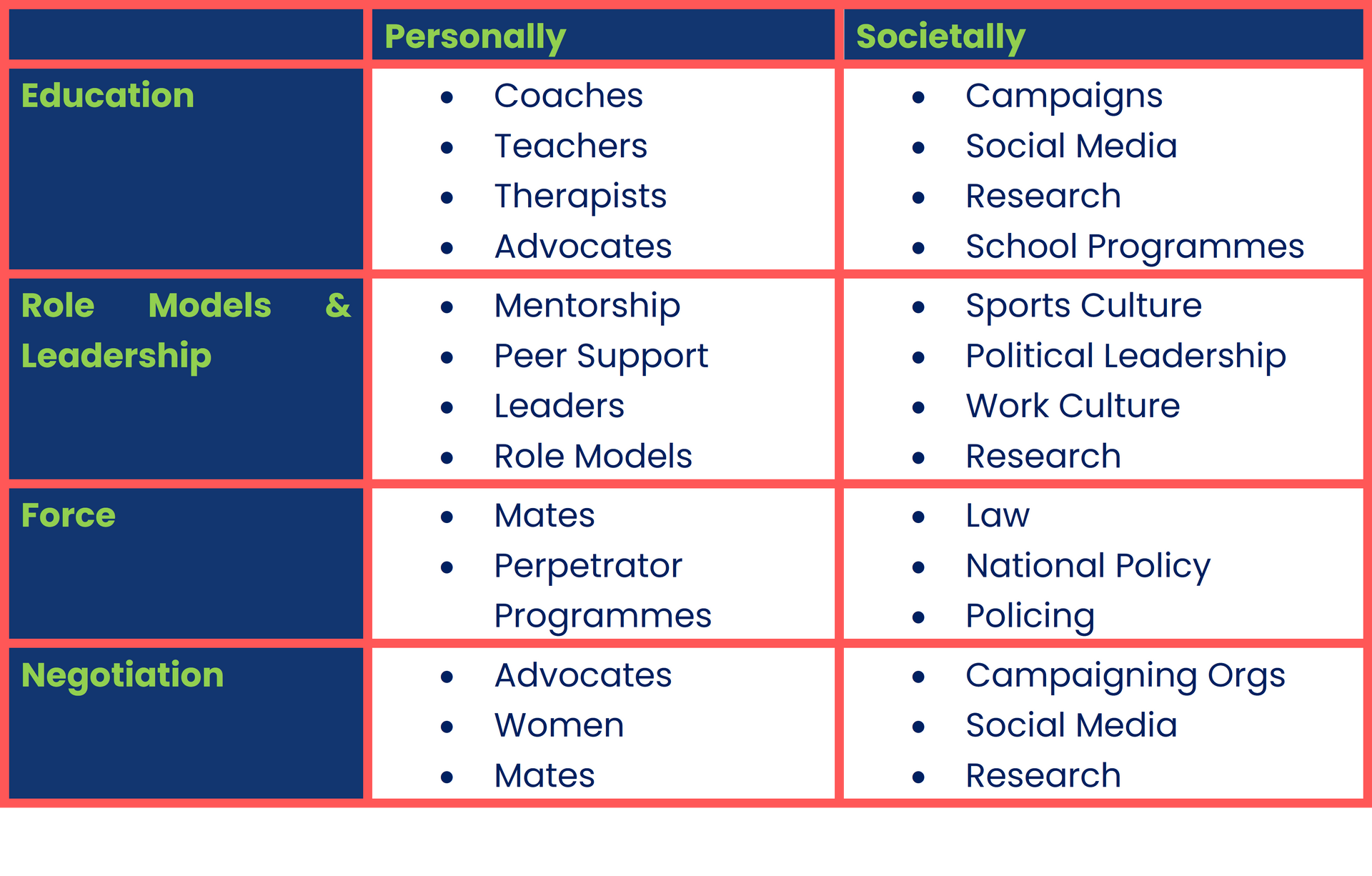
SUMMARY
We are all affected by the power imbalance between men and women. And so, addressing the problem benefits everyone.
As with all power imbalance, there are two sides of the equation to address.
On one side, Women need to be able to develop resilience to the vulnerabilities of being harmed. And, on the other, men need to develop Power Maturity in order to relinquish power so that less harm is caused, and women can develop their own power.
In both cases, each party need EXTERNAL forces or resources to make a shift in the right direction. For women, this looks like allyship, supporting each other, donors, and changes in societal ‘norms’. For men this looks like education, enforcement of the consequences of ‘unacceptable’, and negotiation.
In both cases, what is needed is clear, visible, positive, leadership and role modelling.
And whose responsibility is that? It is the responsibility of those who have influence over how this power balance is portrayed, perpetuated and tolerated – Leaders, Media Platforms, Politicians and Law Makers and Enforcers.
But it is also the responsibility of EVERYONE. We can all be allies, support each other, donate to relevant campaigning organisations, change our tolerances of ‘social norms’, educate those around us, support role models, use our vote wisely, shop, consume and watch with discernment.
It’s time for change. And we all have a part to play.
This series of Blogs attempts to tackle how we, individually, and as a society, can start to redress the imbalance of harmful gender power that has been part of our culture for so long. By understanding how this imbalance plays out between men and women, we can start to address the harm that it causes – for men as well as for women. And for ALL our families and wider society.
#1 of 3 Why do so many women hate using the word Power to describe themselves?
#2 of 3 Components of Power, Vulnerability and Harm
#3 of 3 How Do we Re-balance Power to Cause Less Harm
#4 Women and Power
I work with women to help them regain their power. Individually and in Society.
If you would like to regain yours, email me at marianne@storeyland.co.uk

